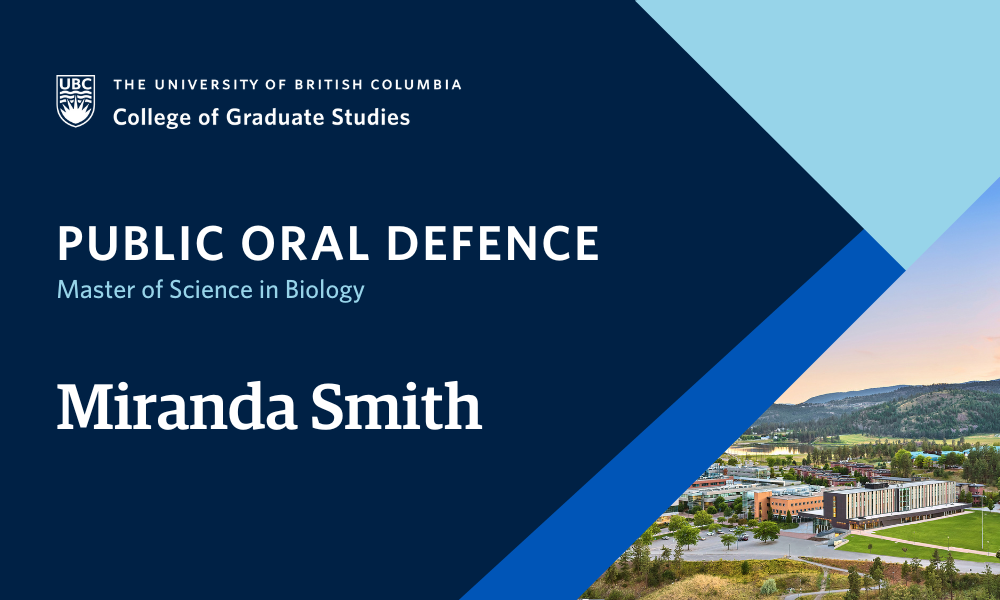
- This event has passed.
Thesis Defence: Objective Dietary Intake and Appetite Sensations across the Menstrual Cycle
July 25 at 12:00 pm - 4:00 pm

Miranda Smith, supervised by Dr. Sarah Purcell, will defend their thesis titled “Objective Dietary Intake and Appetite Sensations across the Menstrual Cycle ” in partial fulfillment of the requirements for the degree of Master of Science in Biology.
An abstract for Miranda Smith’s thesis is included below.
Defences are open to all members of the campus community as well as the general public. Registration is not required for in-person defences.
ABSTRACT
Background: Assessing objective dietary intake and appetite across the menstrual cycle is important for understanding energy balance in different populations and contexts. Purpose: The purpose of this thesis was to determine if energy intake and appetite sensations in both in-laboratory and free-living settings differ between two hormonally distinct menstrual cycle phases. Methods: Premenopausal females with normal menstrual cycles (i.e., ~month-apart) and no major comorbidities were tested during the late-follicular and mid-luteal phases of the menstrual cycle. Cycle phases were identified using self-reported cycle history and urinary luteinizing hormone. Prior to each visit, participants were provided with a 2-day energy- and macronutrient- balanced run-in diet. Ad libitum energy intake was assessed from a single in-laboratory lunch meal and in a 2.5-day free-living setting via the weigh-and-measure technique. During each study visit, sensations of hunger, satiety, and prospective food consumption (PFC) were rated using visual analog scales before (t = -2) and 30, 60, 90, 120, 150, and 180 after consuming a standardized breakfast meal and expressed as area under the curve. Free-living appetite ratings were expressed as daily mean ratings. Differences in energy intake and appetite between the two menstrual cycle phases were assessed using Paired samples t-tests or Wilcoxon signed-rank tests. Two-way repeated measures Analysis of variance tests were used to assess main or interaction effects in repeated in-laboratory appetite ratings. Results: Thirteen participants were included (mean ± SD or median [IQR]; age: 21 [23-19] years, body mass index: 21.3 ± 1.6 kg/m2). There were no differences in energy intake between the late-follicular and mid-luteal phases of the menstrual cycle in either in-laboratory (P = 0.444) or free-living settings (P = 0.635). Additionally, in-laboratory ratings of appetite hunger, satiety, and PFC did not differ between the late-follicular or mid-luteal phases of the menstrual cycle (all P > 0.05). There were no differences in daily mean ratings of hunger, satiety, or PFC during a 2.5-day free-living period (all P > 0.05). Conclusion: Overall, the current data suggests there are no differences in objectively measured energy intake or self-reported appetite between phases of the menstrual cycle.